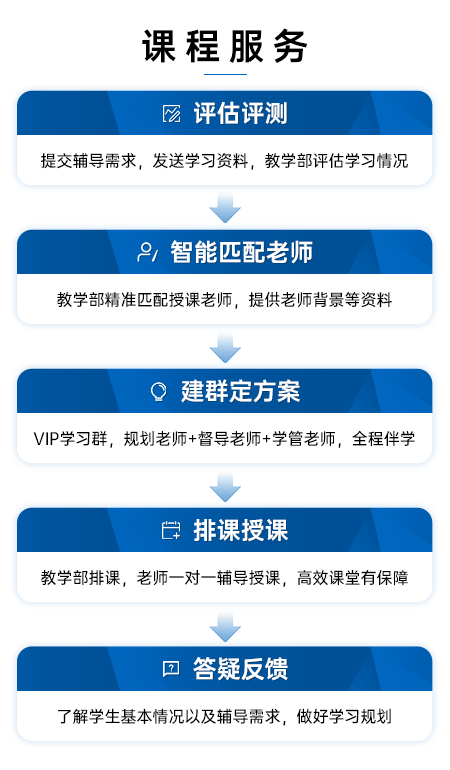文书写作包括两个主要步骤:提出我们想要包含的内容,以及如何构建这些内容,这两个过程可以按顺序进行,也可以同时进行。当写一篇文章时,重要的是要考虑内容和结构相互补充的方式,最好的文章会以深思熟虑的方式将这两个元素结合起来。文章 (包括大学文书) 的过渡词是我们组织一篇文章时最主要的工具。
当开始写一篇文章时,通常建议从凌乱的初稿开始,初稿的目的是把所有的东西都写在纸上,你应该写下尽可能多的想法,而不必过于担心措辞。虽然这是开始创作一篇文章的好策略,但它可能会让你不确定每件事是如何结合在一起的,这个时候就是需要过渡词的地方了。文章的过渡词的范围是巨大的,每个过渡词都暗示着一种不同的关系,通常是以微妙的方式呈现。
虽然本文中所述的过渡词对所有类型的论文写作都是一个有用的工具,但当涉及到为大学文书找到合适的过渡词时,它将特别有用。大学文书的目标是在200-650字的紧凑空间里给人一种强烈的作者整体感觉,正如你所想象的那样,在这样的空间里包含生活或传达复杂的个性并不容易。过渡词也是一个很好的工具,可以让你的文章流畅,它们还可以创造出令人惊讶的并列、关系和对等。读者理解过渡词的方式取决于他们所处的语境。
以下是适用于大学文书和其他论文的过渡词lists,它是由不同类型的过渡词/短语组织而成,一起看看吧!
01 Additive Transitions 递进关系
这些词以一种附加的方式起作用,在已经陈述的基础上积累内容,它们可以用来构建一个论点,或者通过细节的积累来建立一个场景。
Additionally
In addition to
Moreover
Alongside
Furthermore
Further
And
Not to mention
Indeed
Either
Or
Neither
Nor
Too
Let alone
Actually
Much less
In all honesty
To tell the truth
Not only…but also
As a matter of fact
To say nothing of
As well
What’s more
Alternatively
To go a step further
02 Comparative Transitions 比较关系 (相似)
这些过渡词在意象或思想之间划出平行或相似之处。它们不仅可以在直接意义上使用,还可以在看起来不协调的物体或想法之间建立相似的关系。
Similarly
Likewise
In the same way
In a similar vein
Just as
Along the lines of
In the key of
03 Comparative Transitions 比较关系 (不同)
下面的单词虽然也具有比较的功能,但它们表明了想法或图像之间的差异。这些过渡词在建立对比观点时很有用,这是任何论点的重要组成部分。
However
Conversely
On the other hand
On the contrary
In contrast to
Conversely
In contradiction
Although
Though
Yet
And yet
Still
And still
But
Whereas
Nevertheless
Nonetheless
In any event
In any case
In either event
04 Sequential Transitions 连续关系
以下是大学论文书中特别有效的过渡词,它们可以让你按时间顺序或一定的次序排列想法,提供一种随时间推移的连续性。当一篇文章倾向于更有创意的东西或涉及讲故事时,这一点特别有用。
Subsequently
Afterwards
Next
Then
Meanwhile
At the same time
Concurrently
Preceding
Before
In the beginning
At first
At the start
At the outset
Off the bat
First off
Firstly
Secondly
Thirdly
05 Spatial Transitions 空间关系
这些过渡不是按照顺序组织思想或图像,而是表明空间关系。当涉及到描绘场景和/或描述物体时,它们特别有用,但它们也可以用于隐喻。例如,考虑一下如何使用过渡,“站在 […] 的阴影中。”
Standing in […’s] shadow
Behind
In back of
In front of
Facing
Above
Under
In the middle
In the center
To the left
To the right
On the side
Adjacent to
Alongside
Opposite
Here
There
Next to
Over there
Near
Nearby
Below
Further
Beyond
Around the bend
On the outskirts
Across
Between
Before
Among
Amid
Wherever
In the distance
On the horizon
In the foreground
In the background
In the sky
Underground
Through the grapevine
06 Causal Transitions 因果关系
文章中的这些过渡词表示观点之间的因果关系。当你构建一个逻辑论证时,即使用标识作为说服模式时,它们将特别有用。因果转换是学术、法律和科学写作的重要元素。
Accordingly
Resultingly
As a result
And so
Consequently
In consequence
As a consequence
Following
It follows
Therefore
For this reason
Hence
So
So much that
Then
Thus
Thereby
Granting that
That being the case
Under those circumstances
With this in mind
For the purpose of
For all intents and purposes
Because
In the event that
In the event of
In view of
In light of
On the condition that
To the extent that
07 Examples/Supporting Transition 支持关系
下面的过渡词可以用来介绍支持证据,强调例子和作出澄清。尽管因果关系的连接词与递进关系的连接词会在一定程度上有重合,但它们在建立论点时也很有用。与此同时,它们也可以发出转换到另一种语言域的信号。
For example
For instance
In other words
As an illustration
To illustrate
To put it differently
To put it another way
In other words
That is to say
Namely
Chiefly
Markedly
As the evidence illustrates
It’s important to realize
It’s important to understand
It must be remembered
With this in mind
To demonstrate
To clarify
For clarity’s sake
To emphasize
To repeat
To put it plainly
To enumerate
In detail
To speak metaphorically
Imagine
08 Conclusory Transitions 推断关系
下面的过渡词是用来结束一个观点或故事的,它们提供了一种明确的方式来表明某一特定思路的结论。它们之后可能是文章论点的总结或重述,通过这种方式,它们也提供了强调,为读者准备好即将到来的内容。
In conclusion
In summary
To summarize
To put it succinctly
To this end
In the end
At the end of the day
Ultimately
Finally
In the final analysis
In any event
In a word
In short
In brief
By and large
On second thought
On first glance
That’s all to say
To sum up
On the whole
All in all
All things considered
In general
Generally speaking
In essence
In fact
Overall
Altogether
Ordinarily
Usually















